#black nationalism
Text
#talkin#tik tok#black nationalism#🇨🇩#the democratic republic of the congo#🇧🇪#belgium#antisemitism#xiandivyne#king leopold
178 notes
·
View notes
Text
Finding out the creator of Kwanzaa tortured two black women, beat them with an electrical chord, put detergent in their mouths.
Wait till you all find out that that corny-ass negro also was a key informant for the FBI during COINTELPRO and he played an instrumental part in taking down the Black Panthers and had multiple Black Panther members killed.
He also founded Kwanzaa on the weird ideology that black Americans have no culture, so he used multiple cultures from, just, other random cultures, other African cultures, but also other cultures to make Kwanzaa. And it was all based on this ideology that black Americans have no culture.
He and his wife were also the leaders of cults.
This is the autobiography of Huey P. Newton, who was the founder of the Black Panthers, and he literally has an entire page where he writes about how bad Karenga was.
I feel like celebrating Kwanzaa and internalizing it as a black American culture or ritual is such a bad thing because Ron Karenga was such a bad person. And celebrating it gives credence to him and his ideologies.
==
So, there are now two rules if you celebrate or legitimize Kwanzaa. If you're going to defend it on the basis of something like, "well, that origin doesn't matter, it's okay to celebrate it anyway," then...
... you can never complain about "cultural appropriation" ever again.
... you can never complain about the origins of Thanksgiving ever again.
This has been my TED Talk.
#Ron Karenga#Kwanzaa#fake holidays#Happy Kwanzaa#holiday of torture#cultural appropriation#black nationalism#cultural nationalism#religion is a mental illness
15 notes
·
View notes
Text
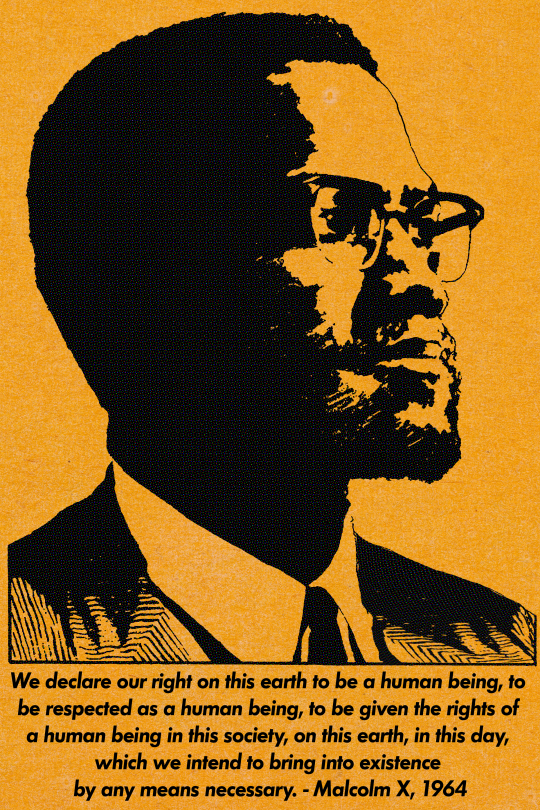
"We declare our right on this earth to be a human being, to be respected as a human being, to be given the rights of a human being in this society, on this earth, in this day, which we intend to bring into existence by any means necessary." - Malcolm X, 1964
#malcolm#X#malcolm X#black panther#black nationalism#mlm#communism#socialism#marxism#marxism-leninism#marxism leninism#marxist#maoism#leninism#mao#maoist#lenin#marx#agitprop#malcomx#huey newton#fred hampton#black panther party#leftism#anti capitalism#MLK#socialist#anti imperialism#ML#black history month
87 notes
·
View notes
Photo
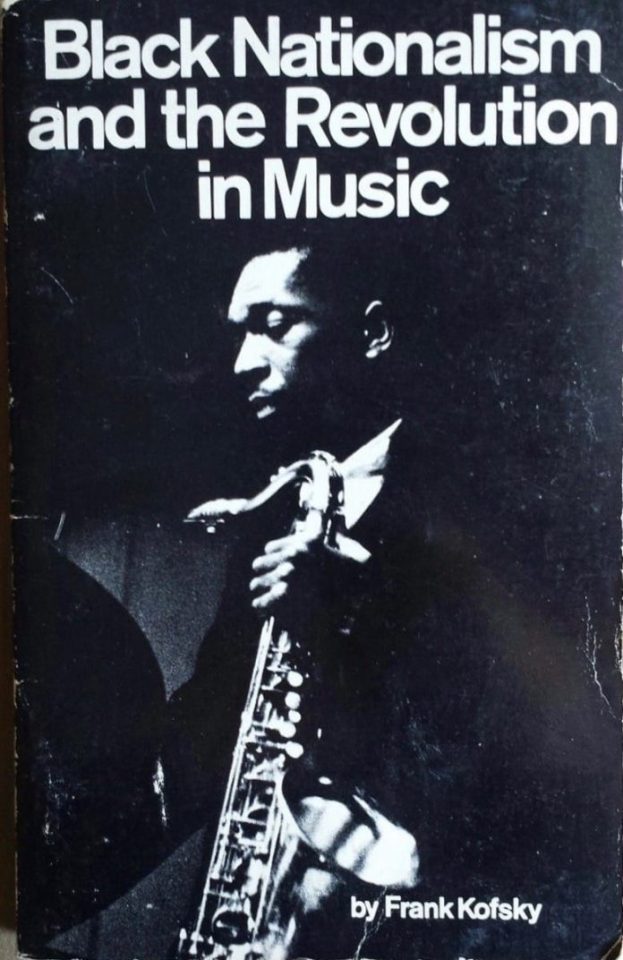
(via JJ 04/71: Black Nationalism And The Revolution In Music - Jazz Journal)
9 notes
·
View notes
Text
Jersey Club Black History Month Challenge Day 28
Ok, so today's challenge I want you to know that I'm Ra-Ra from BantuOtaku Your Local(609) Problack(BN), Black Queer Otaku & so much more…🌾🚪🐈⬛🐾🐾

I wanna say Thanks to everyone who Sees Me, It's truly appreciated…👏🏿💐💖

As an growing Blk Anarchist I want you to never forget to always celebrate Yourself, Speak Up, Speak Out & #Look2Bttm!🧱

We're Not free until ANTIBLACKNESS is ADMONISHED!!!😈
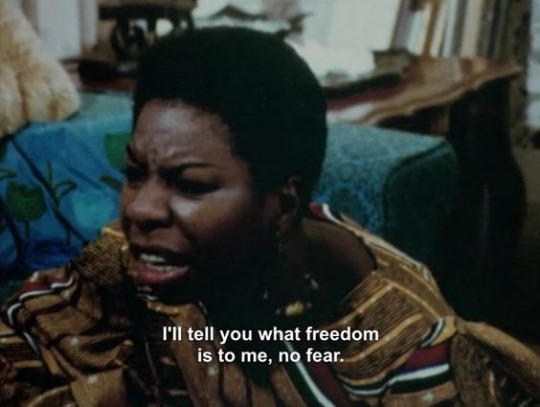
Your IMPACT is undeniable & Moves EVERYTHANG!!!🐈⬛🥷🏿
SHARE UR STORIES
SAY UR NAMES
BUILD
REPAIR
PROVIDE MUTUAL AID
READ
GROW
THROW SHADE
STAND UR SQ
FIGHT BACK
& REST N POWER!!!

Further Reading🔗
Black Nationalist Bookshelf Pt.1
Black Nationalist Bookshelf Pt.2
Black Nationalist Bookshelf Pt.3
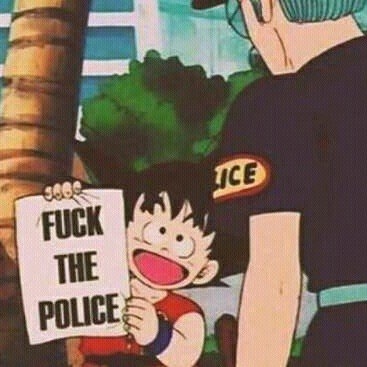
Jersey Club Tech Support⚗️
Reddit
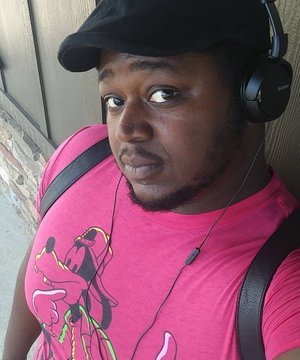
🌑Theme Music🌕
Side B.

DONT FORGET ABOUT YOUR LOVED ONES WHO ARE FREE!!!!!
Some of us are free but aren’t “free” mentally.
You never know you could be saving someone else from self destruction.
Moral of the story: Let your people know you love them and are wishing for their peace and happiness.
CHECK ON YOUR PEOPLE!
PEACE AND LOVE!
Mike Gip
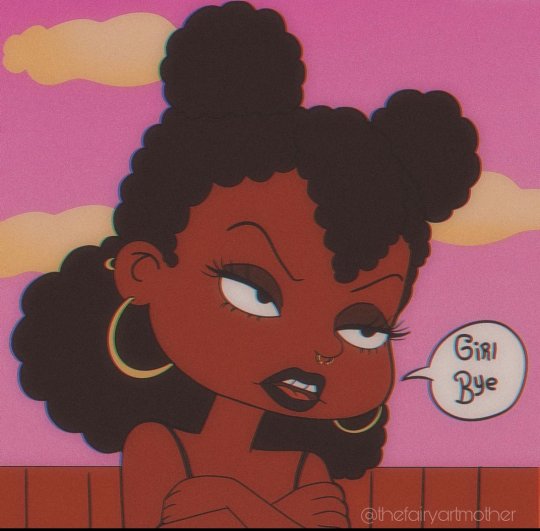
#bantuotaku#jersey club#music#edm#house music#soundcloud#jersey club music#dance music#electronic music#jerseyclub#club music#newark new jersey#newark nj#newark#brick city#club#dance & edm#black history month#black history#black nationalism#pro black#black books#books and reading#books#SoundCloud
4 notes
·
View notes
Text
Rev. Albert Cleage
#uploads#videos#black history#Albert cleage#black power#1960s#60s#decade: 1960s#naacp#civil rights movement#black economics#black nationalism#black nationalist#black families#black family
84 notes
·
View notes
Text

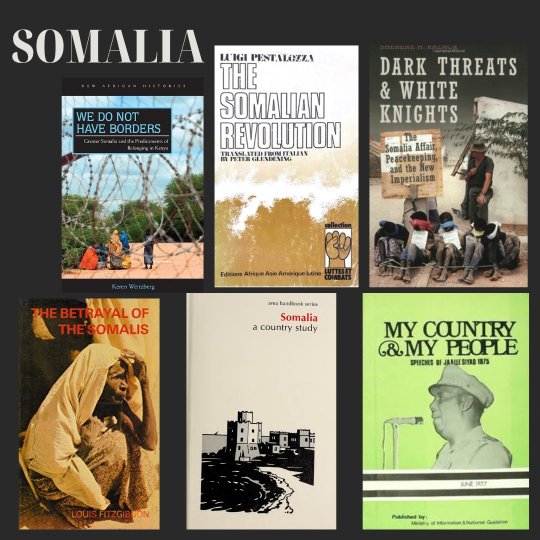
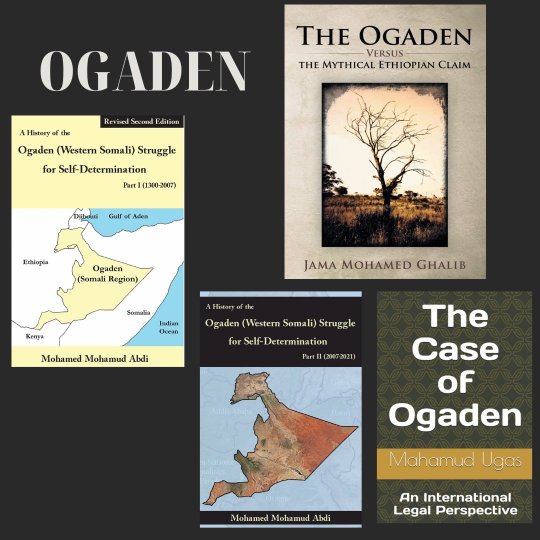
East African History and Politics.
#nation of gods and earths#supreme mathematics#five percent nation#allah school in mecca#Tigrey#hip hop#5% nation of gods and earths#black women#father allah#black people#black men#east africa#somaliland#Tigray#Ogaden#kenya#pan africanism#Black Nationalism#african spirituality#african diaspora
2 notes
·
View notes
Text
Conservaturd Candace Owens And Her Hatred Of The Black Race
She justifies historical White racism. When she says George Floyd was a “horrible human being” she robs him and US, of our humanity. The idea that Blacks are less than human, or two steps from being apes. Other far-fetched ideas can be found in fringe religions. Christian Identity adherents believe that Adam was not the first man but the first WHITE man. They believe Blacks were pre-adamite…

View On WordPress
#antiblackracism#bed wenches#black nationalism#BLACK UNITY#candace owens#george floyd#police brutality
7 notes
·
View notes
Text
The Moynihan Report met a hostile reception from many liberals and leftists who otherwise supported the goal of progressive welfare reform. By the mid-1960s, a coalition of middle-class liberals and radical leftists had united around the cause of pushing for a more generous and activist expansion of welfare than that envisaged by Johnson's rather tepid Great Society reforms. This coalition included established labor unions, welfare associations, religious charities, civil rights groups, social workers on the liberal spectrum, and, farther to the left, more radical groups such as the Black Nationalist movement, the emerging National Welfare Rights Organization, and feminist activists. Independently, these activists had developed an analysis of racial injustice that responded to precisely the kind of malaise identified by Moynihan, but whose causes they had carefully located outside of the African American community itself, in the enduring nature of structural discrimination. Many of these people responded angrily to the tone of Moynihan's report, accusing him of pandering to existing psychocultural explanations of African American oppression. It is this hostile reaction that is most often recalled in contemporary accounts of the Moynihan Report. And yet, as the historian Marisa Chappell has recently argued in some detail, the anathema surrounding Moynihan's name has tended to obscure the considerable affinity between Moynihan's family wage ideology and leftist and liberal conceptions of welfare reform at the time. The liberal and left coalition for welfare reform may have quibbled with the causes of African American disadvantage adduced by Moynihan, yet they were in fundamental agreement that any long-term solution to racism would therefore require an effort to restore the African American family and the place of men within it.
This consensus reached across the spectrum of liberal and left participants in the welfare reform movement. Reformist civil rights leaders such as Martin Luther King were sympathetic to the findings of the report, while Black Muslim and Black Nationalist leaders were in frank agreement with its suggestions of pathological matriarchy and male castration. But even those on the radical labor left were receptive to Moynihan's arguments. A few years after the publication of Moynihan's report, a new kind of labor activism would erupt on Detroit's auto plants as African American workers, both men and women, adopted strike tactics outside the wage bargaining framework of the New Deal labor unions. Brought together under the umbrella of the League of Revolutionary Black Workers in 1969, these unions openly repudiated the reformist and assimilationist methods of civil rights activism on the one hand and the white New Deal labor unions on the other. But they were by no means hostile to the family wage arguments proffered by Moynihan; indeed, even while the first wildcat strikes were initiated by women, the Revolutionary Unions saw the restoration of African American manhood, via an extension of the New Deal family wage to black men, as the ultimate aim of their extralegal activism.
Melinda Cooper, Family Values: Between Neoliberalism and the New Social Conservatism
#feminism#melinda cooper#neoliberalism#league of revolutionary black workers#moynihan#daniel patrick moynihan#martin luther king jr#black nationalism#civil rights#the welfare state
8 notes
·
View notes
Link
"What makes revolutionary nationalism, well, revolutionary? It is the desire to overthrow rather than reform the current political economic system. In the same way that Kwame Ture remarks that a house is not transformed unless all of the pieces of the old structure are replaced, the revolutionary nationalist desires that the capitalist system be completely abolished and replaced by something else. We do not want black capitalism or a so-called 'autonomous economy' unless that economy involves the establishment of a worker’s state and the control of the means of production by the New Afrikan working masses. The cultivation of well-being entails having a structure that abolishes all barriers to obtain the materials necessary for that cultivation. Capitalism, a system where there is a class who controls the productive forces and benefit from the accumulation of wealth through the appropriation of surplus-value, makes it so that there will always be a battle between the haves and have-nots. Revolutionary nationalism calls for an end to domination of man by man, and it doesn’t matter if this domination is by the White man or the Black."
4 notes
·
View notes
Text

By: Paul Mulshine
Published: Dec 28, 2015
Around this time of year, various journalists run sanitized versions of the creation myth of Kwanzaa. They report that it has roots in African culture and overlook the fact that founder Maulana Karenga has a past that discredits both him and his made-up holiday.
So, it was interesting to see this article in which the writer notes that Kwanzaa is even less popular than Festivus, that holiday made up for the Seinfeld show.
Click here for the in-depth article I did for Heterodoxy Magazine on Kwanzaa back then.
Below is my 2002 column on the subject:
--
ONE OF MY READERS called me the other day to inform me that the public schools in New Jersey aren't allowed to celebrate Christmas but are celebrating Kwanzaa.
This is intriguing. Christmas celebrates the legacy of Christ who, by all accounts, was a nonviolent man who believed that people of all types could learn to live in peace. Kwanzaa celebrates the legacy of an extremely violent man from California who has dedicated his life to spreading dissension among the races.
More on that later. First let's deal with the question of why schools can propagate a belief in Kwanzaa but not Christmas or Chanukah. For an answer, I called Ed Martone of the American Civil Liberties Union.
''Kwanzaa isn't a religious holiday," said Martone. "It's a cultural holiday. It doesn't have the same restrictions as Chanukah or Christmas."
I'll grant that there is a certain logic to the view. After all, once the government gets involved in religion, the potential conflicts among Catholics, Protestants, Jews, Muslims and atheists are so complex that perhaps we are better off avoiding them altogether.
But by that same logic, the public schools should not be pushing certain cultural practices. And the schools especially shouldn't be endorsing cultural practices created by a character with the beliefs and the background of Ron Karenga.
It is not easy to get a hold of the facts about the background of the creator of Kwanzaa. In fact, it is nearly impossible. The history of the founder of Kwanzaa has disappeared into an Orwellian time warp.
If you look up the name "Ron Karenga" on any of the many newspaper data bases that are available these days, you will read a glowing account of a deep-thinking philosopher who comes across as a sort of jolly Father Christmas for African-Americans.
You won't find any reference to murder or torture. Yet murder was a specialty of US, the paramilitary organization that Karenga ran in Los Angeles in the late 1960s.
As for torture, Karenga took that more personally. The accounts of his personal role in a particularly sadistic episode of brutality have been largely lost to history.
The episode seems to exist only on a few microfilmed pages of the Los Angeles Times. It took two days of research and phone calls to track them down.
Here is an excerpt from an article headlined "Woman describes two days of torture" on the May 1971 trial of Karenga for torturing two dissident members of his group:
''Deborah Jones, who once was given the Swahili title of an African queen, said she and Gail Davis were whipped with an electrical cord and beaten with a karate baton after being ordered to remove their clothes. She testified that a hot soldering iron was placed in Miss Davis' mouth and placed against Miss Davis' face and that one of her own big toes was tightened in a vise. Karenga, head of US, also put detergent and running hoses in their mouths, she said."
Karenga was convicted and served more than three years in a state prison.
This was not an isolated incident. In 1967, Karenga was accused of having his thugs beat up a student who asked him an impertinent question at a college forum.
In 1969, US got involved in a struggle with the Black Panthers for control of the black studies program at UCLA. All involved carried guns on campus. The US guys were quicker on the draw; they killed two Panthers in a shootout at the student center.
It would be nice to say that after Karenga got out of jail in 1975 he repented, saw the error of his ways and invented Kwanzaa as a means of atoning for his past.
Nice, but untrue. Karenga has never atoned for his thuggery, probably because no one ever asked him to. And his sole concession to repentance was his 1975 conversion to Marxism. For him, this was considered to be a sign that he had moderated his views.
Karenga invented Kwanzaa at the height of his gang days, in 1966. And he made it up not to bring peace among the races but to divide them. That's why he placed this alleged "harvest festival" in competition with Christmas, which he derided because of its ties to the hated capitalist system.
It may be true that Kwanzaa has evolved into a ceremony that has importance to a great number of well-intentioned people, people who have no knowledge of its creator's questionable history.
But Karenga himself continues to champion the holiday as an example of what he terms "cultural nationalism." This is the view that black people are a separate "nation" within a hostile country. During a visit to Newark in 1987, Karenga defined America as "an insane, socially decaying society." "We need a value system and a support system . . . because the world is organized against your Africanism," he told Newark residents.
Karenga remains a leading spokesman for the multicultural movement, a movement based on the idea that Americans should emphasize their differences rather than their similarities.
The idea of Kwanzaa fits firmly within multiculturalism. And however you feel about multiculturalism, you must admit that it is a political movement and therefore one that should not be supported with tax dollars.
As for Karenga himself, he should be given all the respect due a convicted torturer.
Call me an old fuddy-duddy, but I believe that once a man inserts a hot soldering iron into a woman's mouth, he should be excluded from public discourse for eternity. I may be wrong, however. Certainly, the people in California don't seem to share this view.
Karenga is now a professor at California State University in Long Beach.
That's California for you. By that standard, there's a university presidency waiting somewhere for Charles Manson when he finally gets out.
COMMENTS:
Note that I'm not arguing here that people shouldn't celebrate Kwanzaa. It's a free country and people can celebrate what they want.
I'm arguing that the media should not cover these celebrations without including the key facts about its founder. That's just basic journalism.
==
Why the Vice President of the United States feels compelled to pretend that her family has a long tradition of celebrating a fake holiday that apes African tropes and Judaism, concocted by a brutal felon and sociopath, and which was invented when she was two years old is a question worth seriously contemplating.
#Ron Karenga#Kwanzaa#Happy Kwanzaa#fake holidays#holiday of torture#Kamala Harris#seven principles#cultural nationalism#black nationalism#black separatists#neo marxism#religion is a mental illness
11 notes
·
View notes
Text
America is just as much a colonial power as England ever was. America is just as much a colonial power as France ever was. In fact, America is more so a colonial power than they, because she is a hypocritical colonial power behind it. What is 20th… What do you call second-class citizenship? Why, that’s colonization. Second-class citizenship is nothing but 20th slavery. How you going to tell me you’re a second-class citizen? They don’t have second-class citizenship in any other government on this Earth. They just have slaves and people who are free! Well, this country is a hypocrite! They try and make you think they set you free by calling you a second-class citizen. No, you’re nothing but a 20th century slave.
Just as it took nationalism to remove colonialism from Asia and Africa, it’ll take black nationalism today to remove colonialism from the backs and the minds of twenty-two million Afro-Americans here in this country.
— The Ballot or the Bullet Speech by Malcolm X
2 notes
·
View notes
Quote
Do I see it as realistic within two lifetimes? Yes, you’re talking like 150-160 years with that kind of timeframe. As in, as far from 2022 as 2022 is from the American Civil War. You genuinely think it’s unrealistic for the tides of opinion, identity, national vs. state sovereignty, etc., to change dramatically over that period of time? Hell, I don’t think it would surprise anybody on this sub if a time-traveler came back from the year 2175 and told us al that there is no United States of America anymore at all by that time.
I believe that there is a serious constituency for black national self-determination in the black community right now. Remember that I used ti be a serious leftist, involved in activist communities. One thing that really shocked me about that experience, and that was ultimately the main driving factor behind my turn to the hard right, is realizing just how many black people really do not like white people. More specifically, how for a very large portion of American blacks, being around white people is exhausting. Making your way through the world in a country where everything around you is a constant reminder that this country wasn’t built for you, or with you in mind, and that the cherished founders of the country, pretty much to a man, thought you and your ancestors were some varying level of unwelcome and inferior, grinds a person down. If you really need me to provide you some specific examples of this I can do so, but surely you’ve read the sort of opinion pieces I’m talking about. These aren’t the thoughts of just hoteps and extremists: these are the kinds of things people like Charles Blow says often in the New York Times.
When I was a leftist I would hear my black activist friends talk about this, and I would feel genuinely terrible for them! And I would try and talk to them about what it would take for them to finally feel comfortable and at-home in America. And I realized that the scale of changes that would need to be made to American society would be so, so much deeper and more fundamental than I’d imagined. You would pretty much need to tear the whole thing down to the studs. The type of changes being demanded are things like: “Stop caring if employees show up to work on time.” “Any institution which derived literally any of its revenue from slavery or from an individual who profited from slavery at any point needs to completely remake itself and abandon any ties to its history.” “If someone decides he doesn’t want to be under arrest, police officers should just let him go.” “Expecting kids to solve math problems correctly is racist.” Again, if you want me to track down examples of all of these, it wouldn’t be hard, but I’d be shocked if you haven’t encountered each one of these arguments in one or another prestige publication. These are not fringe arguments at this point.
Barack Obama’s Dreams From My Father has a passage in which he spent three weeks traveling all around Europe, and he says that within the first week he realized that he just didn’t feel any connection to the place at all. He would look at the architecture, the signs everywhere of rich cultural heritage and cherished folkways, and he found it all beautiful and totally unaffecting. “It just wasn’t mine.” And, he’s right, it wasn’t his. He was totally justified in feeling that way. And for an increasing number of black Americans, that’s the conclusion they are reaching about America. “It just isn’t mine.” They’re never going to feel at home here, unless every last bit of its history is scrubbed away and replaced with something unrecognizable and brand-new.
For this reason, I believe that my vision could very well become a reality, because black people will actively try to make it a reality. One of the major reasons I want black people to have a country that truly is built for them is that I’ve heard so many of them say, or imply, that this is what they want. Sure, I’m not going to pretend this is the only reason - far from it. You won’t see me crying, “No, please, don’t go!” However, I think a great deal of “conservatives” will do precisely that. Republicans seem massively more invested in a “multiracial democracy” than progressives do, in many ways. While a large contingent of progressives are saying, “Race matters intimately to me, and identity categories should be able to preserve their own heritage and folkways”, the standard conservative response is, “Why are you so obsessed with race? Don’t you know that we’re all Americans, and we all bleed red?” Conservatives are more likely to go down with the ship of trying to hold this failing experiment together than progressives are, because conservatives are still - bless their hearts - emotionally invested in the American mythos, as reinterpreted post-MLK.
You’ve made a number of remarks to me along the lines of “You seem like so much of an idealist, whereas most white nationalists want a race war, or have resigned themselves to one.” And I just want to genuinely ask: Which white nationalists’ work are you reading? The “National Divorce” idea has been one of the most popular and influential ideas on the Racialist Right for decades at this point. Occidental Quarterly was publishing detailed plans for exactly how to divide the land, repatriate the families of mixed-race people, etc. back in the late 90’s and early 00’s. American Renaissance has published countless detailed arguments in favor of the same ideas. I’m well aware that there are violent and bloodthirsty white nationalists out there, but all the ones I personally know and interact with share my sincere hope and belief that something like what I’m proposing can become a reality.
Hoffmeister25
3 notes
·
View notes
Text
SolarPunk > CyberPunk
Don't Let them romanticize your oppression...
#solar punk#cyberpunk#solarpunk#jersey club#afrofuturism#black nationalism#problack#black tumblr#bantuotaku
13 notes
·
View notes
Text
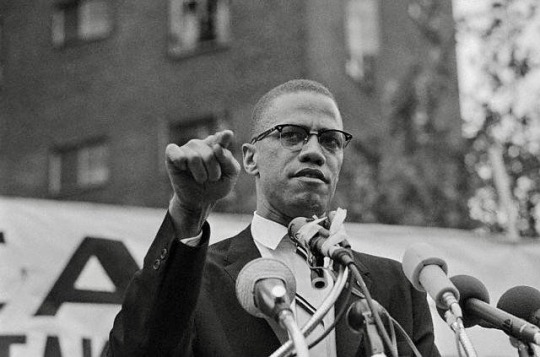
Malcolm X (Malcolm Little, Malik el-Shabazz)
#history#vintage#malcolm x#malcolm little#malik el-shabazz#african american history#african american#black history#civil rights#human rights#activist#writer#black nationalism#islam#pan africanism
6 notes
·
View notes
Text
youtube
SWIRCONOMICS (a video about black interracial relationships) by F.D. Signifier
#thought provoking#racism#slavery#black nationalism#black love#black power#fetishization#anti-blackness#double standard#media manipulation#Youtube
1 note
·
View note